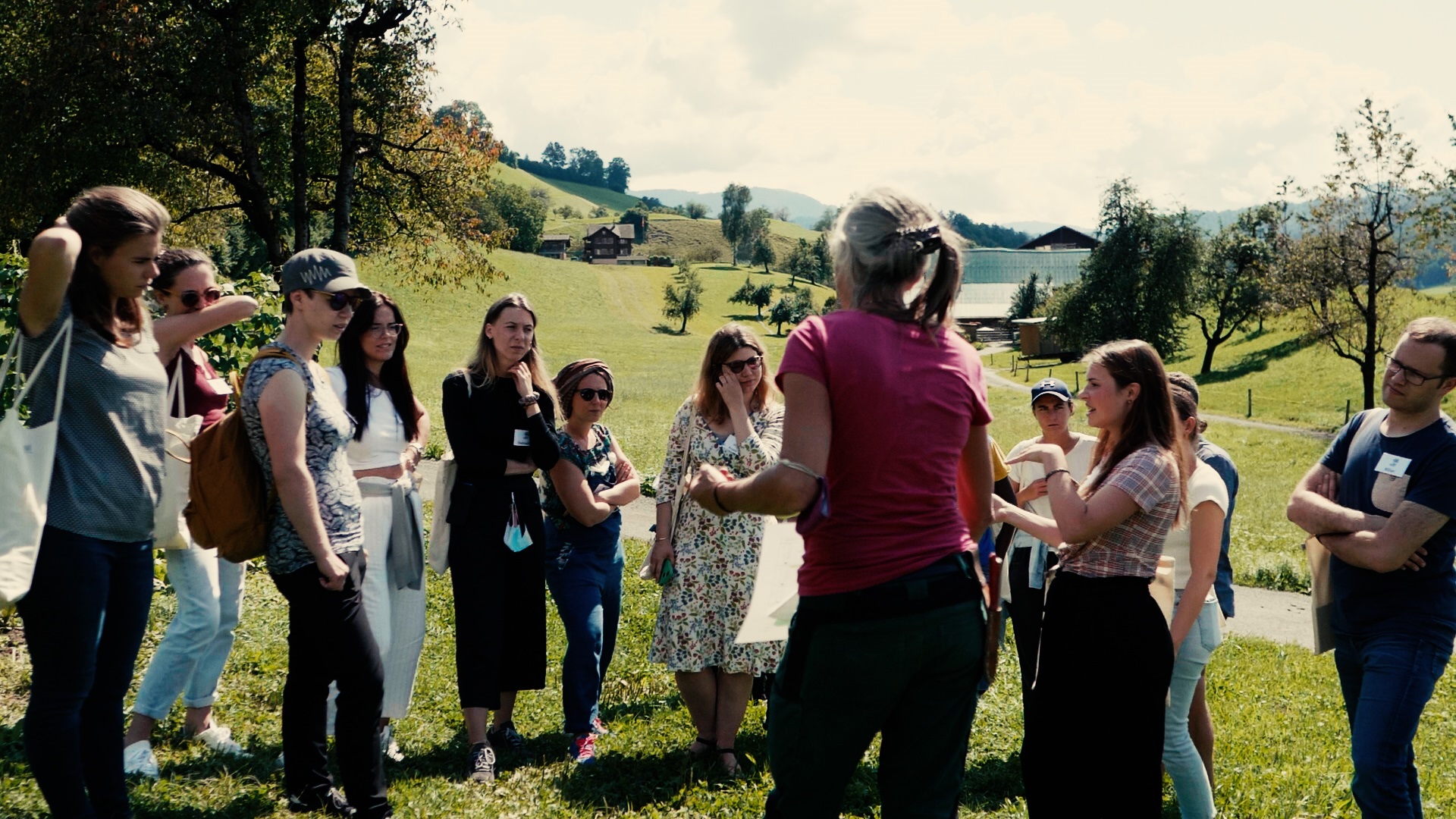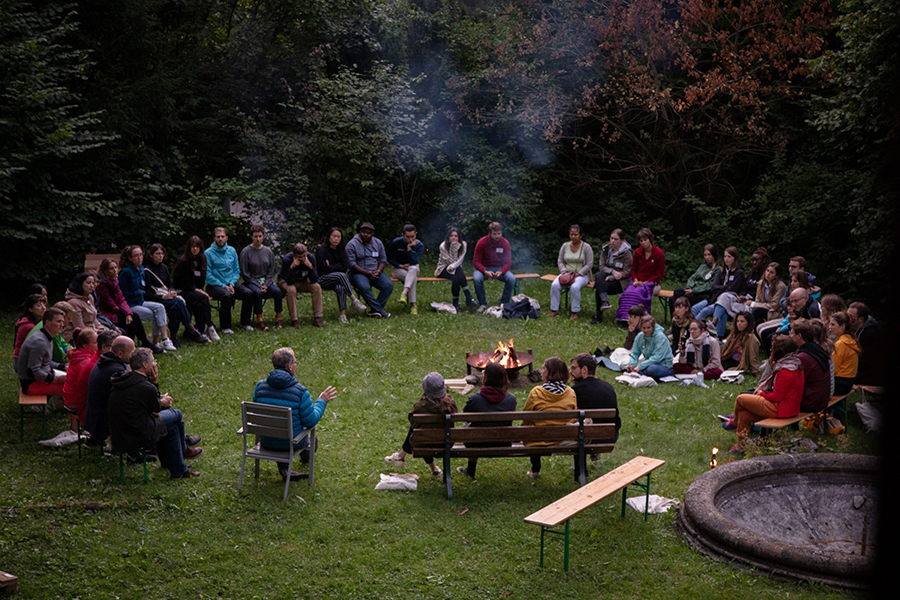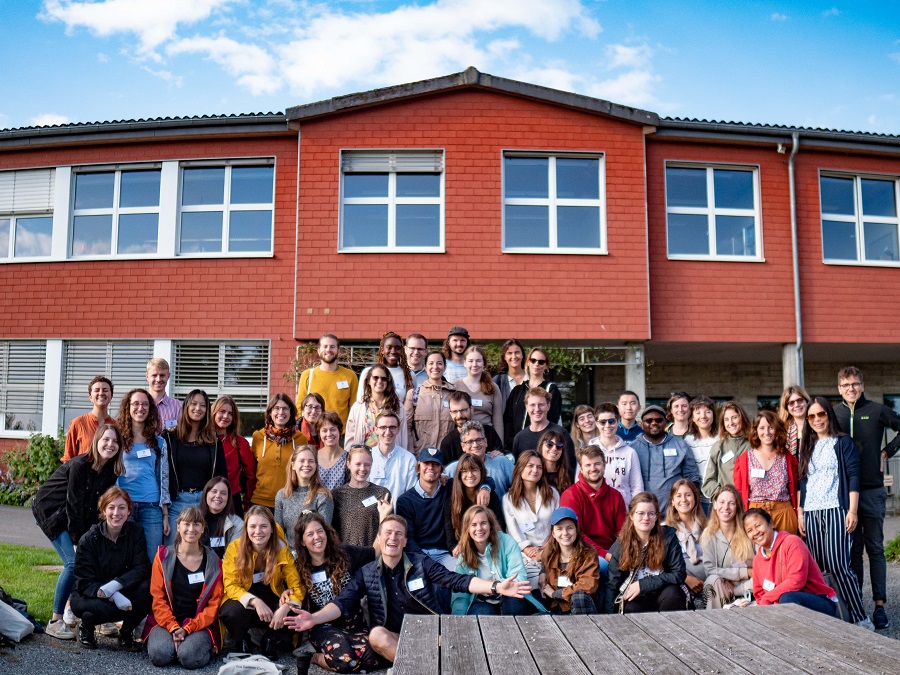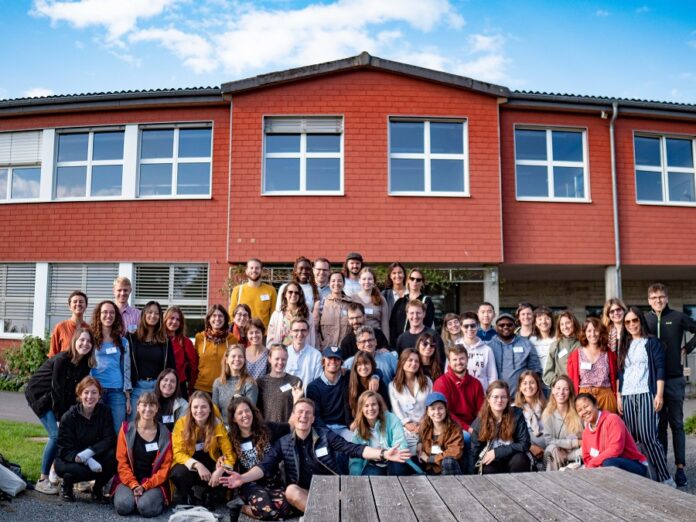Valerio Ciriello SJ from Lassalle Institute in Switzerland organised an Eco Summer Camp for Young People from 22 to 27 of August 2021 on the theme “From wild consumption to responsible engagement.” In this interview Valerio speaks shares his experiences on what moved him to start this venture and how does he intend to take this forward.
This interview was made by Lumnesh Swaroop Kumar SJ, Coordinator for Ecology at the Jesuit Conference of South Asia, to Valerio Ciriello SJ. They are both members of Eco-Jesuit Europe.
-
Can you introduce yourself to our readers?
My name is Valerio Ciriello SJ, I am a Jesuit from Switzerland belonging to the newly founded Central European Province (ECE). Before entering the Society of Jesus in 2014, I used to be a lawyer. After my theological studies in the summer of 2020 in Paris, I returned to Switzerland, I am working as a University Chaplain in the university of Lucerne, as well as at the Lassalle-Institut as the promoter of ecological transition, especially among the young people.
-
How did this idea of “Eco Summer Camp” for the youth spark within you?
The idea of the ‘Eco Summer Camp’ came after my stay in the summer of 2019; at the Campus de la Transition near Paris and at the Schumacher College (Totnes) in England. But above all, it was my encounter with Sister Cecile Renouard, founder of the Campus de la Transition, and then with Prof. Gael Giraud SJ, which have been fundamental in directing my life more and more toward an ever deeper ecological transition. These encounters ignited in me the desire for a deeper ecological conversion, a desire which I thought the Eco Summer Camp could foster in young people.

-
How many young people participated in this camp and from which nationalities?
Fifty-three young adults participated in this first edition of the Eco Summer Camp. They came from fourteen different European countries. This first edition targeted just those residents in Europe. In fact, we had all the continents represented. We had participants from Latin America, North America, Africa, Europe, and Asia. These participants are all resident in Europe a good number came from France, Germany, Italy and of course from Switzerland.
-
In taking the previous question a little further, in your opinion, what can other people outside of Europe learn from this camp in terms of organizing such camps or even participating in camps?
A major lesson others can learn from this camp is that; young people are deeply concerned about our ecological reality and are ready to engage responsibly for a more sustainable world. They need just good orientations and a booster to set them going. This camp tried to do that. Others outside Europe can think of organizing similar Camps for young people taking into consideration the reality their milieu.
An Eco Summer Camp can be organized anywhere in the World, there is no special rocket-science behind it. However, one of the most important elements to consider in doing this in my opinion is to assure diversity of its participants. I deeply feel the heterogeneity of the participants (young adults from varied cultural, religious, geographical, educational and professional background) at the Eco Summer Camp contributed immensely to the success of this camp.
This I am convinced won’t have been possible in a much more homogeneous group. The diversity in a group is a priceless value which cannot be substituted with anything else! If I could support the establishment of such a camp, in or outside Europe, I would be more than happy.
- What were the basic dynamics of the camp?
The dynamics of the camp were varied. The basic group dynamic was fostered by a pedagogy that provided highly differentiated learning modules in the framework of a holistic pedagogy. The training modules ranged from the classic class presentation, however with great space for interactivity, workshops, walks through the forest and visit to an organic garden, excursion to university research laboratories and fields, and fireside talks with some of the experts, with the goal to know the person behind the expert.

All of these gave the participants, but also the experts, the possibility of meeting with others at different levels, thus favoring a deeper feeling of fraternity. This was one of the main goals of the Eco Summer Camp: to touch and reach the hearts of the participants in order to start, slowly but steadily, an inner transformation of oneself oriented toward building sincere and strong fraternal relationships.
-
What significant results were you able to perceive at the end of the camp among the young people?
The most touchable and significant results, which I perceived, were the deep (re-)connections which have been fostered in the participants with nature and the whole earth as well as sincere and strong bonds of friendship which have been established in such a really short time among them. I think these bonds were created to support each other in their individual efforts towards a more sustainable word.
-
Are you planning to have similar camps in the future?
Of course, it would be a pity not to repeat such a beautiful experience, as I said before, the next Eco Summer Camp will take place from the 25th of August to 1st September 2022, once again in Switzerland.
-
Do you foresee collaborations with groups outside of Europe in the future camps?
Obviously, we are open to collaborate with anyone in Europe and outside Europe, as we have already done through the participation of Georgetown University (USA), in the person of Prof. Gael Giraud.

We are also ready to collaborate with people of different faiths and religions. In fact, the Eco Summer Camp, from the very start seeks to be a place open to other religions and worldviews. This is at attempt to be in coherence with the teaching of the encyclicals Laudato Si and Fratelli tutti, which invite each one of us to go beyond the differences among us to find a common ground with our brothers and sisters around the world. This is an essential precondition to show the way towards a common destiny.
-
In what ways can the UAP (Universal apostolic preference) “Caring for our common home” of the Society of Jesus be instilled among the young people with whom we engage ourselves?
I believe, and the Eco Summer Camp experience has demonstrated this very well, that if we really want to inspire young people, to open them up to the “care for our common home”, then we as Jesuits must open our self too. We must open up to others. In creating bonds, we inspire the young people to connect among themselves for a more sustainable world.
I think that the time of “solitary” initiatives has passed, not because we don’t have the means to train the young generations with our structures. But, because from a pedagogical point of view, we would be giving the wrong signal especially if we were not able to collaborate with people and institutions not linked to the Church in this field.

The encyclicals Laudato Si and Fratelli tutti, ask us to walk together with others, that is, with everyone. If, on the other hand, we only focus on those who are part of “our flock”, I don’t think we give a great signal of openness. Moreover, as I said in a previous question, diversity makes the search for solutions and the encounter with the other much more interesting. If the Eco Summer Camp had been addressed only to Catholics, it would not have been as successful. In addition, we have sought collaboration from the beginning with secular institutions in order to give not only a sign of openness but also to remove the suspicion that of a hidden “evangelization” agenda behind the event.
In engaging with the young people, we need to show them that we are capable of the fraternal relationship, in and out of our circles, which we are calling them to build for a more sustainable world. This is by the way how Jesus was encountering the people of his time regardless of their cultural, social or religious background.
Valerio Ciriello SJ
Lassalle Institute in Switzerland


